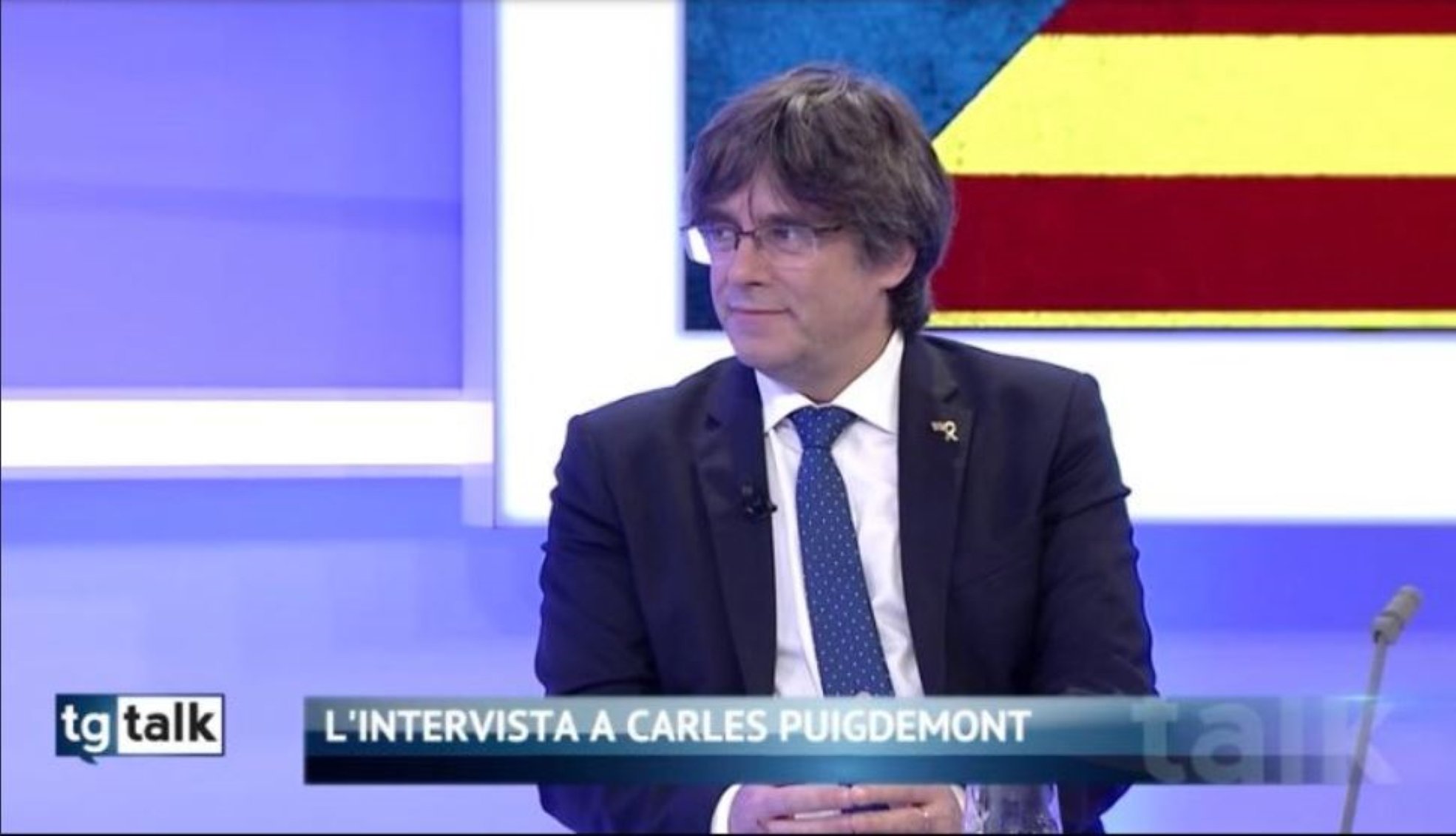In interviews with Swiss, Italian and Russian media, the exiled Catalan president Carles Puigdemont has explained the strategy - with regard to Catalonia's efforts to decide its political future - which has been adopted by the Council for the Republic, the Catalan exile body which he leads. That strategy advocates maintaining a commitment to seek independence via unilateral means, while also keeping the door open to dialogue. But he emphasizes in the interviews - with Swiss broadcaster RSI, Italy's 20 Minuti and Russia's Sputnik - that for now the Spanish executive has discarded a negotiated route. Puigdemont takes it as given that dialogue must be framed within an acceptance of Catalonia's sovereignty - its right to decide its own future.
"I want to be clear about this question: we're not going to renounce either dialogue or unilateral means. The moment has come for Spain to accept that in Catalonia there are more than two million people who want to decide their future. It's pointless to talk about some ideal fantasy of a sacred and untouchable unity of Spain. Politics must be based on reality, not on fantasy," he told Switzerland's RSI.
Speaking to the Italian edition of the 20 Minutes newspaper, Puigdemont totally discarded taking a step back or abandoning the quest, linking the independence push to the very survival of Catalonia. "This is the Catalan spirit. To never give in. We are between two great powers, France and Spain, and we know we are a minority, but we want to survive," he asserted.
Puigdemont a Lugano: «Siamo delusi dalla vigliaccheria dell’Unione europea» #catalogna #puigdemont #lugano #unioneeuropea #referendum https://t.co/x7uuOsIifB
— Ticinonline (@Ticinonline) September 14, 2019
Puigdemont, who expresses his disappointment with the EU although he believes he will be confirmed as a Member of the European Parliament by around Christmas, told 20 Minuti that the Spanish state has made a mistake if it thought that, "because it is more powerful", that this would prevent the objective of Catalan independence from being reached. "They're wrong," he declared. He added that if the state takes a confrontational approach, Catalans will respond in a democratic and non-violent way.
Finally, the exiled Catalan leader told the Russian digital newspaper Sputnik that the decision to push towards independence was Catalonia's last resort after more than 30 years of negotiating with the Spanish governments under both major parties, the PSOE and the PP.
Exclusive: Puigdemont says #Catalonia's independence was 'final alternative' in relations with #Spain @KRLS https://t.co/M1i0qSimwB
— Sputnik (@SputnikInt) September 15, 2019
"For us, independence became the final alternative after 30 years trying all other possible solutions, engaging in dialogue with Spain, cooperating with all of Spain’s governments – both left-wing and right-wing. We tried improving the Spanish democracy, we renewed our autonomous status, we gained public support. We tried all the options, but in response we only heard “no”. In the face of such an attitude, the people can either come to terms with it or mobilize against the injustice," he said.
Puigdemont's media interviews coincide with the statement released yesterday by the Council for the Republic, combining a proposal for Catalan independence based on unilateral action and civil disobedience if necessary, with the principle of actively maintaining an door open to dialogue.

